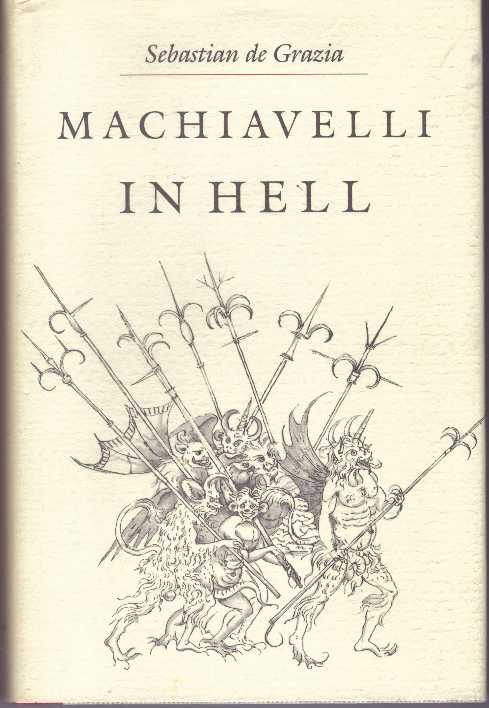Hardcover, 497 pages
English language
Published March 20, 1989 by Princeton University Press.

Hardcover, 497 pages
English language
Published March 20, 1989 by Princeton University Press.
In this intellectual biography Sebastian de Grazia presents a new Machiavelli—in a way that gives an almost uncanny sense of the great Florentine thinker's presence. After telling the story of Machiavelli's childhood and the period of personal crisis that followed his imprisonment and torture, the book turns to The Prince. Thence-forth the facts of biography—Machiavelli's home, journeys, fears and joys, works, friends, and loves—never cease to weave in and out of the narrative as his ideas gather power and come together to form a unified vision of humankind and the world.
Convinced that a good political leader or "prince new" would have to engage in acts of cruelty and bad faith, Machiavelli faces a predicament: how to justify this evil to prospective leaders themselves and to people at large. He cannot dispense with their fear of God's judgment, for he holds it to be essential to political community. Machiavelli in …
In this intellectual biography Sebastian de Grazia presents a new Machiavelli—in a way that gives an almost uncanny sense of the great Florentine thinker's presence. After telling the story of Machiavelli's childhood and the period of personal crisis that followed his imprisonment and torture, the book turns to The Prince. Thence-forth the facts of biography—Machiavelli's home, journeys, fears and joys, works, friends, and loves—never cease to weave in and out of the narrative as his ideas gather power and come together to form a unified vision of humankind and the world.
Convinced that a good political leader or "prince new" would have to engage in acts of cruelty and bad faith, Machiavelli faces a predicament: how to justify this evil to prospective leaders themselves and to people at large. He cannot dispense with their fear of God's judgment, for he holds it to be essential to political community. Machiavelli in Hell offers a profound and skillful exploration of how he penetrated this dif-ficulty. To do so, he had to work out a new statecraft, invent a new moral reasoning, and redimension heaven and hell. Drawing on all of Machiavelli's writings, from carnival songs to major political works, de Grazia bases the book on Machiavelli's own words. He uses his own translations of Machiavelli, including many passages never before translated into English.